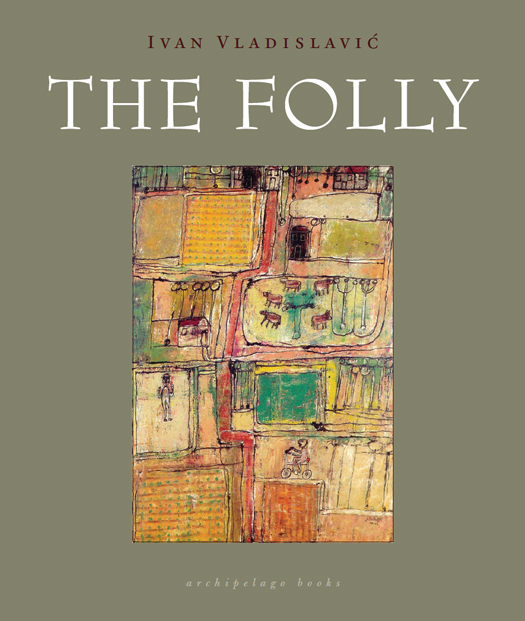
The Folly
کتاب های مرتبط
- اطلاعات
- نقد و بررسی
- دیدگاه کاربران
نقد و بررسی

June 22, 2015
An enigmatic newcomer to a South African veld endeavors to construct a mansion on an inherited plot of land and, in the process, pushes the sanity of his neighbors to its limit in this heady, lively, and darkly surreal novel by South African writer Vladislavic. Upon arriving in the small community, Nieuwenhuizen, as he’s known, promptly invites the curiosity of his neighbors—Mr. Malgas, a hardware store owner, and his wife, Mrs. Malgas—by setting up camp on an untended acre behind their house. A neighborly overture by Mr. Malgas leads to a budding friendship between the two men, and in time, Mr. Malgas volunteers to help Nieuwenhuizen realize his home-building ambitions. Mrs. Malgas, who remains suspicious of Nieuwenhuizen, sees all too clearly that her husband is becoming a kind of servant to their new neighbor. In brief sections, we witness Mr. Malgas’s growing obsession with, and increasingly humiliating submission to, Nieuwenhuizen. Mr. Malgas’s inability to see that his new friend’s house is a fiction—or, conversely, our inability to see that it’s real—gives the story a dizzying effect. Vladislavic’s cryptic, haunting tale echoes Jorge Luis Borges and David Lynch, drawing readers into its strange depths.

June 15, 2015
A slim, symbolic novel with allegorical overtones by a noted South African novelist and short story writer. Originally published in 1993, the book follows the architectural adventures of the aptly named Otto Nieuwenhuizen, who is indeed building a new house. One day he simply shows up on a vacant lot next to a house owned by Mr. and Mrs. Malgas. At first, this traditional, even stodgy couple thinks Nieuwenhuizen is either a nightmare or a mirage, but soon they're peeking out curiously at him as he pitches his tent and begins to plan his house. Malgas, aka Mr., eventually overcomes his distaste and becomes intrigued by Nieuwenhuizen's manner and larger-than-life personality. (Vladislavic emphasizes the newcomer's size and that he casts "a gigantic shadow over [the Malgases'] house.") Malgas is a retailer of hardware, a profession that the house-builder feels might be of use even though he tends to use castoff and improvised tools. While Mrs. Malgas, aka Mrs., never loses her antipathy for Nieuwenhuizen, her husband starts to lend a hand and soon expresses a desire to be of use. And while the house looms large in everyone's imagination, its importance is more as a dream or vision than as a reality-and it takes Malgas considerable time to buy into this idea. When he does, he's overwhelmed by the beauty of possibility, while his wife remains mired in the mundane and literal. It's clear the author wants us to focus on the ideal rather than the real, and his stylistic playfulness pulls us into his vision, much as Malgas is pulled into Nieuwenhuizen's. Playful fiction with a corresponding (and paradoxical) seriousness of intent.
COPYRIGHT(2015) Kirkus Reviews, ALL RIGHTS RESERVED.

October 15, 2015
Originally published on the eve of the 1994 democratic general elections in South Africa, a historic event widely recognized as the official end of apartheid, this work, winner of the 2015 Donald Windham-Sandy Campbell Literature Prize, allegorically depicts the colonial legacy inherent in the politicized notion of land and the right to its occupation. The story unfolds between a polite South African couple, Mr. and Mrs. Malgas, and Otto Nieuwenhuizen, a squatter who has moved onto the property adjacent to their home. Though initially observing his unusual behavior from the safety of his home, Mr. Malgas eventually befriends Otto and assists him in constructing a house. With a web of string and nails, the two builders map out an imaginary mansion across the desolate parcel of land. Delving deeper into the mind of Otto and simultaneously alienating his concerned wife, Mr. Malgas slowly loses grip on his sense of place. VERDICT With vivid language, Vladislavic (Missing Persons; 101 Detectives) illustrates the ambiguity inherent in the way our imagination both creates and bridges ideological gaps in society.--Joshua Finnell, Denison Univ. Lib., Granville, OH
Copyright 2015 Library Journal, LLC Used with permission.

























دیدگاه کاربران